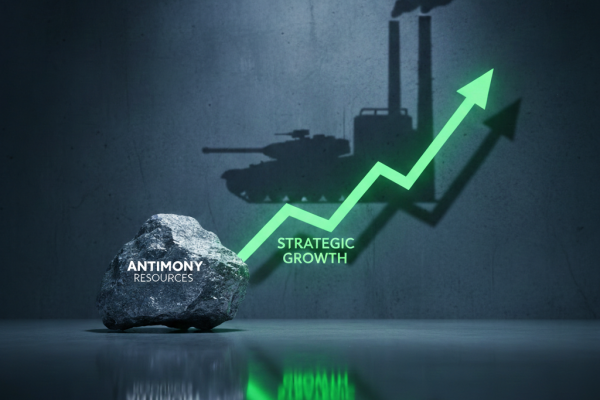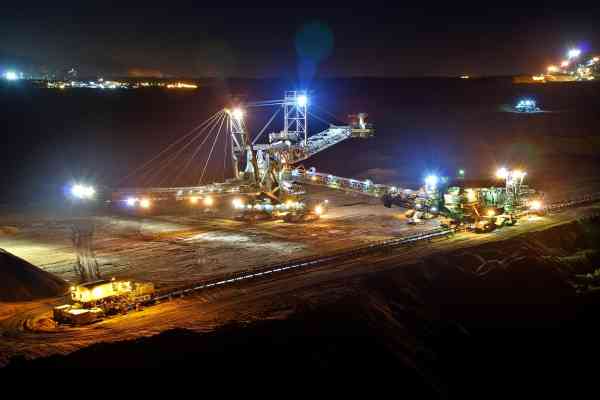September 14th, 2022 | 15:17 CEST
BYD, Altech Advanced Materials, Varta - Breakthrough in the battery market
Electromobility is considered a key technology in the transformation of the transport sector. In 2021 alone, the number of new registrations and the market share of battery-powered vehicles more than doubled. In addition to the charging infrastructure, efficiency plays a decisive role in the expansion of e-cars. Another obstacle to rapid growth is likely to be the shortage of lithium, an essential raw material for the production of lithium-ion batteries, due to the high demand. A German company is about to start a revolution with new innovative technology. The main component of the new battery is regular table salt, which is available in extremely large quantities and is produced in highly diversified regions.
time to read: 3 minutes
|
Author:
Stefan Feulner
ISIN:
BYD CO. LTD H YC 1 | CNE100000296 , ALTECH ADV.MAT. NA O.N. | DE000A2LQUJ6 , VARTA AG O.N. | DE000A0TGJ55
Table of contents:

"[...] While tungsten has always played an important role in the chip industry, it is now being added to batteries for e-cars. [...]" Lewis Black, CEO, Almonty Industries
Author
Stefan Feulner
The native Franconian has more than 20 years of stock exchange experience and a broadly diversified network.
He is passionate about analyzing a wide variety of business models and investigating new trends.
Tag cloud
Shares cloud
Altech Advanced Materials - The super battery of the future
"Germany lacks innovations, the former quality seal "Made in Germany " does not exist anymore!" is the current opinion in society. However, this is far from the case, especially in one of the future topics - in the development and production of batteries for electromobility, Germany is showing its former steel strength. One of the main protagonists of a promising joint venture is Altech Advanced Materials, which has a stock market value of just EUR 8.59 million. The Heidelberg-based company holds a 25% stake in the newly founded Altech Energy Holdings GmbH, while three quarters are held by the listed Australian company Altech Chemicals Ltd. The joint venture is founding the new Altech Battery GmbH with the Fraunhofer Institute for Ceramic Technologies and Systems IKTS, the leading battery institute in Germany. Its aim is to produce and market a solid-state sodium-alumina battery (SAS) under the product name CERENERGY.
Years of research work
In this context, the SAS-CERENERGY batteries have enormous advantages over conventional lithium-ion batteries and could replace the current technology in the future, according to representations. CERENERGY batteries are said to be non-flammable and therefore fire- and explosion-proof, have a lifespan of more than 15 years, and function in extremely cold and hot climates. The battery technology uses common salt and small amounts of nickel. In addition, neither lithium, cobalt, graphite, nor copper are required, so they function independently of critical supply shortages and price increases of raw materials. The manufacturing costs of CERENERGY batteries are also expected to be about 40% lower than those of comparable lithium-ion batteries, according to Fraunhofer.
The SAS technology to be commercialized has been developed by Fraunhofer IKTS over the past eight years. It has significantly increased energy capacity and enabled lower production costs. SAS batteries have already been successfully tested in terms of capacity in stationary battery modules. Currently, the SAS batteries of IKTS are in the final phase of product testing and are ready for commercialization.
The joint venture's plan is to build a production facility at Altech's future site in Schwarze Pumpe, Saxony. This will initially see the plant reach an annual capacity of 100-MWh in an initial production line. The joint venture has started the planning process for the detailed feasibility study required for the commercialization process and its financing. Long-term plans include the construction of additional lines up to a Gigawatt battery facility.
The potential of Altech Advanced Materials could be seen even before the new joint venture with the Fraunhofer Institute was established. The Heidelberg-based company already has a hot iron in the fire with its patented Silumina Anode coating process. Altech Advanced Materials also holds a 25% stake in this technology, while the remainder is owned by Altech Chemicals Ltd., which is listed on the Australian Stock Exchange ATX and is worth AUD 148.80 million. A preparatory profitability analysis, which the Company published back in April, attests to the high economic viability of the planned production project. The analysis calculates a value (net present value at a discount rate of 8%) of EUR 420 million for the production plant of Altech Industries Germany GmbH. A quarter of this amounts to EUR 105 million. This compares with a stock market value of EUR 8.59 million.
Uwe Ahrens, a member of the board of Altech Advanced Material, will present the highly interesting company on the occasion of the 4th IIF - International Investment Forum on 27 September 2022. The registration to the virtual event is free of charge.
BYD - Continuing after the Buffett shock
The BYD share success story was abruptly halted by the sale of company shares by investor legend Warren Buffett. After reaching new highs at USD 43.61, the share price subsequently plummeted by more than 38% to USD 28.50. However, this is where striking support zones are located, which investors could use for a new entry opportunity.
Fundamentally, the Chinese market leader continues to run like clockwork. According to Hunan Today, a chip factory is to be opened in the central Chinese city of Changsha in October. The plant will produce up to 500,000 automotive chips annually based on an 8-inch wafer and is expected to generate sales of RMB 800 million and profits of up to RMB 40 million per year. Construction of the USD 140 million project began in April 2020, and the first test runs for production started this month.
The growth of electromobility is unabated, and the battle for the most efficient batteries is in full swing. The joint venture between Altech Advanced Materials, Altech Chemicals Ltd. and the Fraunhofer Institute for Ceramic Technologies and Systems IKTS is a new player that could herald a revolution in the nature of new batteries for the electric car industry. After the sell-off, the Chinese electric car manufacturer BYD also appears interesting.
Conflict of interest
Pursuant to §85 of the German Securities Trading Act (WpHG), we point out that Apaton Finance GmbH as well as partners, authors or employees of Apaton Finance GmbH (hereinafter referred to as "Relevant Persons") may hold shares or other financial instruments of the aforementioned companies in the future or may bet on rising or falling prices and thus a conflict of interest may arise in the future. The Relevant Persons reserve the right to buy or sell shares or other financial instruments of the Company at any time (hereinafter each a "Transaction"). Transactions may, under certain circumstances, influence the respective price of the shares or other financial instruments of the Company.
In addition, Apaton Finance GmbH is active in the context of the preparation and publication of the reporting in paid contractual relationships.
For this reason, there is a concrete conflict of interest.
The above information on existing conflicts of interest applies to all types and forms of publication used by Apaton Finance GmbH for publications on companies.
Risk notice
Apaton Finance GmbH offers editors, agencies and companies the opportunity to publish commentaries, interviews, summaries, news and the like on news.financial. These contents are exclusively for the information of the readers and do not represent any call to action or recommendations, neither explicitly nor implicitly they are to be understood as an assurance of possible price developments. The contents do not replace individual expert investment advice and do not constitute an offer to sell the discussed share(s) or other financial instruments, nor an invitation to buy or sell such.
The content is expressly not a financial analysis, but a journalistic or advertising text. Readers or users who make investment decisions or carry out transactions on the basis of the information provided here do so entirely at their own risk. No contractual relationship is established between Apaton Finance GmbH and its readers or the users of its offers, as our information only refers to the company and not to the investment decision of the reader or user.
The acquisition of financial instruments involves high risks, which can lead to the total loss of the invested capital. The information published by Apaton Finance GmbH and its authors is based on careful research. Nevertheless, no liability is assumed for financial losses or a content-related guarantee for the topicality, correctness, appropriateness and completeness of the content provided here. Please also note our Terms of use.




